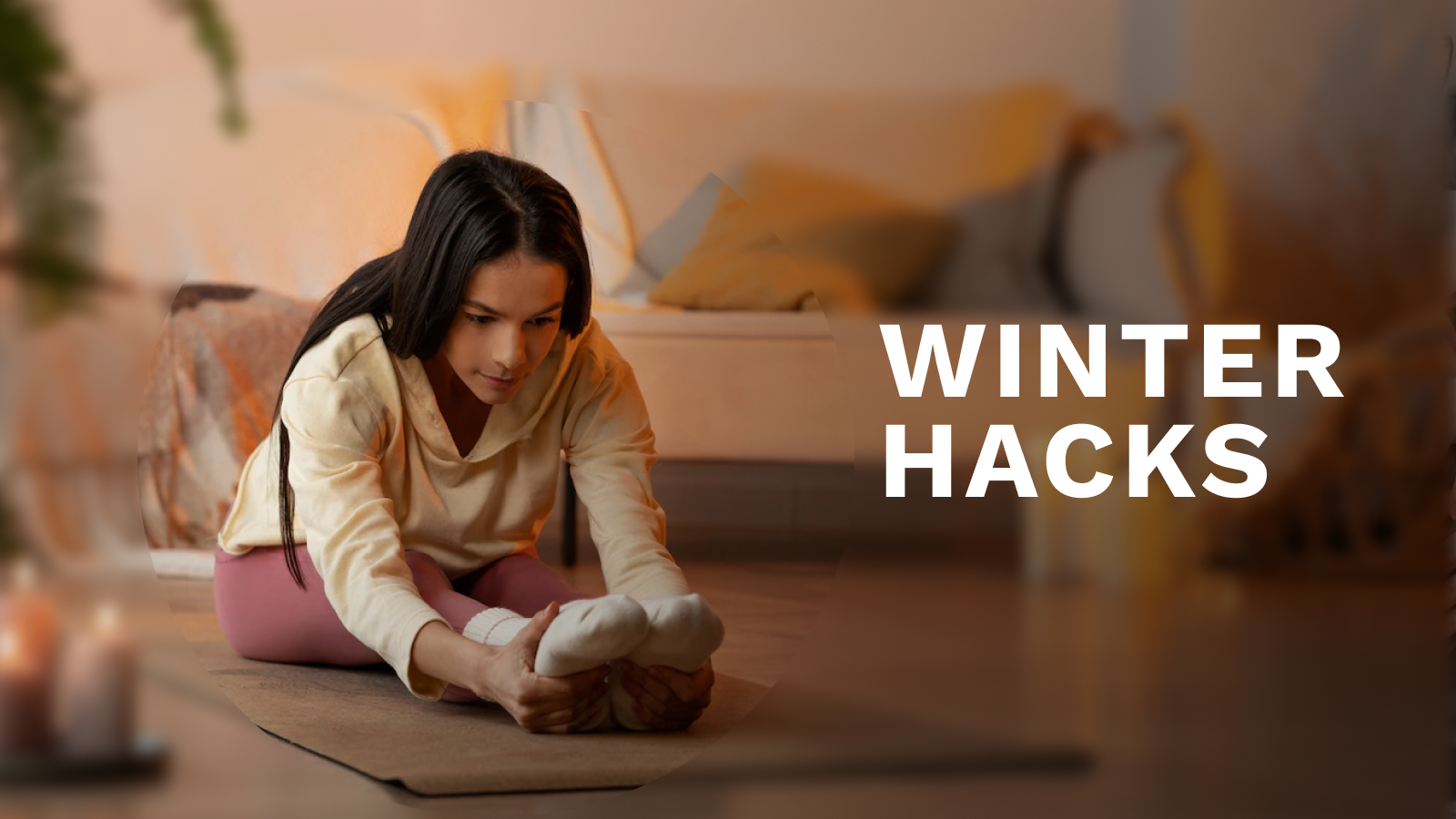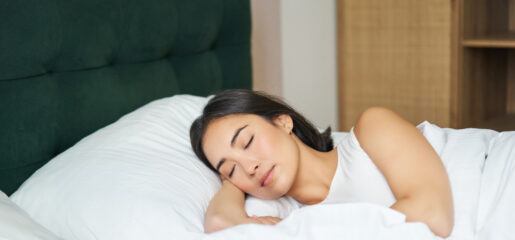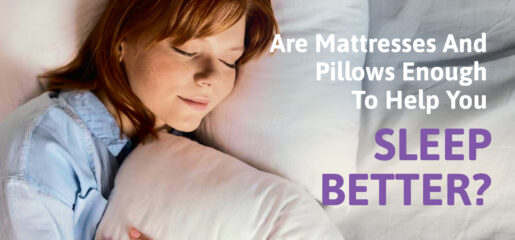
The winter season is full of wonderful traditions that millions of people love. From the holidays, to traveling, to getting to spend time with family, it’s easy to forget that the winter season is not so easy for some. Seasonal depression (sometimes called seasonal affective disorder, or S.A.D.) affects millions of people every winter season.
Some people just suffer through seasonal depression, but you don’t have to! We’ve compiled some research-based hacks that can help you tackle seasonal depression and get through the winter season feeling happy (or at least more like yourself). Let’s take a look at what seasonal depression is, the effects it has on people, and what to do about it!
What is Seasonal Depression?
Seasonal depression is a term that describes the phenomenon when many people tend to dip in depressive spells during the winter season. This includes people that otherwise have no other mental health issues or have no history of depression (though seasonal depression can hit chronic sufferers even harder).
While seasonal depression is usually associated with the winter months, it’s possible for “seasonal depression” to begin at the onset of the summer and end during the fall. Some of the hacks we talk about won’t be applicable if you experience summer seasonal depression, but there are a few that can help depression regardless of the time of year.
What Causes Seasonal Depression
While there’s a lot of guesswork that goes into what causes any kind of depression, there seems to be a few common factors that regularly contribute to seasonal depression, some of which include:
Lack of Sunlight
When the winter months come, sunlight becomes more scarce, which can throw the human body for a loop. Days being drastically shorter can impact your circadian rhythm, which can trigger depressive episodes. Sunlight also helps the body create vitamin D, and deficiencies in vitamin D have been associated with depressive symptoms.
A lack of sunlight can also lead to lower levels of serotonin, which is a neurotransmitter associated with depression. When your body doesn’t have enough serotonin, it’s possible to experience depressive symptoms.
Reduction in Exercise
When the weather changes, it’s less comfortable to be outside, which can make exercise more difficult. Exercise is associated with helping to alleviate depressive symptoms, and if you’re used to getting a lot of exercise but stop in the winter, you may feel symptoms of seasonal depression.
Emotional Triggers
While the holiday season brings feelings of joy for many, that’s not the case for others. The holiday season can be a trigger for traumatic memories, or it could highlight the lack of close connections. Emotional triggers can trigger depressive episodes at any time, including around the holidays.
Can Seasonal Depression Impact Sleep?
Seasonal depression can have a terrible impact on sleep. Some people will find that it’s hard to fall asleep or stay asleep, while others find that they are sleeping too much, exceptionally during the day time. Research shows that most people with depression will experience problems sleeping (around 75% of adults with any kind of depression), including seasonal depression.
For those that find themselves sleeping too much, there’s another unfortunate side-effect. The sleep isn’t rejuvenating. Instead, it’s a chronic fatigue that doesn’t go away, regardless of the amount of sleep they get. It’s a terrible cycle to get into, which is why we advocate anyone experiencing seasonal depression to try to treat it in some way.
You Can and Should Treat Seasonal Depression
Even though seasonal depression is temporary for many, that doesn’t mean you should ignore it. Seasonal depression can, and should, be treated. Fortunately there are a lot of hacks you can follow (both general tips and items you can ask your doctor about) to tackle seasonal depression!
Winter Hack #1: Take Vitamin D Supplements
The research into whether vitamin D supplements can help with depression (including seasonal depression) is still pretty new, but there’s a lot of interesting results. Several studies have shown that taking vitamin D supplements can help alleviate depressive symptoms, though not all of the research shows the same promising results.
Regardless, taking vitamin D supplements won’t hurt, so it’s worth a shot. This is especially true if you are getting little to no sunlight during the winter months (and are accustomed to being outside a lot during the spring, summer, and fall).
Winter Hack #2: Temporary Start Antidepressants (or increase current dosage)
There’s a bit of a misnomer that if you start taking antidepressants, you need to take them long term. This isn’t true at all, and physicians regularly prescribe antidepressants specifically for the winter season. For example, Wellbutrin (or bupropion) is a prescription anti-depressant that is often prescribed specifically to treat seasonal depression.
If you’re already on an antidepressant, the winter season can make your depressive symptoms worse. It’s not uncommon to ask your doctor to increase your daily dose to help prevent symptoms of seasonal depression from occurring, or to treat those symptoms once they arrive.
Winter Hack #3: Try CBD
If you aren’t using an antidepressant, want to wean off your current antidepressant, or have tried antidepressants in the past and couldn’t tolerate the negative side-effects, then you may want to consider CBD. A 2020 study showed that CBD may be an alternative treatment for depression (as well as helping manage anxiety disorders, including PTSD and general anxiety).
Many who want to avoid using antidepressants often look to CBD because of the mild side-effects (if any) of CBD use. The vast majority of people that try CBD experience no negative-side effects.
Other CBD Benefits
Aside from helping with mental health, CBD may be able to help sleep. A study examining the effects of CBD on sleep and anxiety found that CBD may have a positive impact on those struggling to sleep. Part of this is helping to address underlying conditions that are preventing sleep, though it also suggests that CBD itself may help manage chronic sleep issues.
CBD can also help to manage chronic pain, especially inflammatory pain. For those that are struggling to get a good night’s sleep.
Winter Hack #4: Exercise
Getting exercise in the winter months can be a challenge, especially between the cold weather and busy holiday schedule. However, if you struggle with seasonal depression, getting more exercise could have a direct benefit. While exercise may or may not actually help alleviate depression, it absolutely can help alleviate the symptoms of depression.
Even if it’s not very much exercise, some is better than none, and may help you feel better while you attempt to manage seasonal depression.
Winter Hack #5: Eat Cleaner (but don’t diet)
Between the multiple holidays, parties, and festive meals, it can be tough to make healthy food decisions. However, research has shown that making poor food decisions can contribute to depression, and that includes seasonal depression. Specifically, there’s a correlation between people who struggle with mental illness and people who have a deficiency of omega-3 fatty acids, B vitamins (especially B12), certain minerals, and amino acids.
The answer here is to choose foods that are nutritionally dense, but that doesn’t mean you should diet. For example, cutting carbs is a common strategy in many diets, but low-carb diets are often a precursor to depression. That’s because the production of neurotransmitters (like serotonin) is kicked off by foods high in carbohydrates.
That doesn’t mean you should load up on high-sugar sweets or unhealthy breads. Instead, research suggests sticking to foods that have a low glycemic index, like vegetables, fruits, whole grains, and pasta.
Winter Hack #6: Use a S.A.D. Lamp
Missing out on the sunlight can trigger seasonal depression, which is why many look to use a S.A.D. lamp to help supplement light. S.A.D. lamps are very bright lamps that may help your body produce certain chemicals that you may be missing because of the lack of sunlight.
Specifically, it’s thought that S.A.D. lamps may help produce melatonin (which helps you sleep) and serotonin (which is linked to treating depression). While there’s not a lot of concrete research behind the claims of S.A.D. lamps, many people anecdotally claim that it’s helpful in managing seasonal depression.
Winter Hack #7: Avoid Isolation
You may enjoy spending time alone during the cold, winter months, but that isolation could be making your seasonal depression worse. Make an effort to get out of the house, spend time with friends or family, and even just go to a public space if friends or family aren’t available.
It’s easy to get stuck in unhealthy cycles of social isolation when you’re battling depression, so do your best to avoid extended periods of being by yourself.
Combine Hacks
Finally, you can combine these hacks! Most of these pieces of advice can be used together, and their effects can combine to provide potent relief from seasonal depression. If you are making changes to medication (or if you’re on prescription medication and want to try CBD), you’ll want to be sure to talk to your doctor before adding or removing any daily supplement, medicine, or vitamin.
Talk with a Doctor Before Combining CBD and Prescription Anti-Depressants
These two together can have weird effects, so we’ll talk about how these two hacks shouldn’t be used together unless you talk with your doctor first. We’ll mention that if someone is on antidepressants and they don’t like the side-effects, CBD could be an alternative instead of the prescription medication, but we’ll emphasize that they should talk with their doctor.
How to Choose a CBD Product
CBD offers many customers the relief from seasonal depression that they need, but not all CBD products are the same. You’ll need to consider the delivery method of the CBD, the specific CBD formula, as well as making sure a brand offers 3rd party lab testing for their products.
Delivery Method
CBD can be taken in several different ways, and each of these methods will have their own pros and cons for customers. Here’s a quick overview of how different CBD delivery methods compare (and each of these methods has the ability to deliver the benefits of CBD that can help to fight depression)
Inhaled CBD
Inhaled CBD (like through a vaporizer) is a common way to take CBD, and for good reason. When inhaled, CBD can get straight to your bloodstream (without having to pass through your digestive system), which means the effects are felt quickly, usually within 15 minutes of taking a puff.
The downside to inhaled CBD is that it can be hard to measure a precise dose, and you’ll need to puff every few hours to maintain the effects.
Ingestible CBD
Eating CBD is another common delivery method. Ingestible CBD can be something that’s swallowed whole (like PhenoGel capsules), or chewed and eaten, like traditional edibles or gummies. Dosing is usually easier with ingestible CBD, since you can measure doses precisely by how many capsules or gummies you take.
The downside of ingestible CBD is it may be challenging for customers who don’t swallow pills well. There are also absorption issues, since ingestible CBD has to make its way through your digestive system before it hits your bloodstream, which can limit its bioavailability. You’ll want to be sure to choose ingestibles that are designed with bioavailability in mind, like we’ve done with PhenoLife products.
Transdermal Patches
Finally, transdermal CBD patches are a newer method of delivery CBD. These patches are placed on the skin, and CBD is delivered through the skin into the bloodstream. Like inhalable CBD, patches completely bypass the digestive system, which maximizes the absorption levels. Patches are long-lasting, too. For example, the PhenoPatch is designed to deliver CBD for 8 hours, with the effects of the CBD lasting closer to 12 hours.
The downside of patches is that it can take some time for the CBD to take effect, which is why many customers mix patches with another delivery method, like inhalable CBD.
What about Topical CBD Lotions?
There are many topical, CBD lotions available to customers, and while they are great for your skin or sore muscles, they will not be great for seasonal depression. Topical lotions won’t deliver CBD into your bloodstream, which is how CBD gets to your brain to interact with your endocannabinoid system.
There’s nothing wrong with using CBD lotions, but they won’t be effective in treating your seasonal depression.
Formula
The specific CBD formula used in a given product should also be considered. Not only are you choosing between full-spectrum, broad-spectrum, or CBD-isolate, you’re also choosing between catered formulas that may help to boost the effects of CBD.
For example, PhenoLife uses full-spectrum CBD in its products, which may help customers take advantage of the entourage effect. We also have a catered CBD formula targeted specifically to improving mental health (called our Mind formula), specifically targeting tough-to-manage anxiety that may contribute to depressive symptoms.
3rd Party Lab Testing
Finally, it is absolutely crucial that you choose a CBD brand that offers 3rd party lab results. Specifically, what you’re looking for is a Certificate of Analysis, which is a document that will show the results from the CBD product samples that were tested.
Lab testing is the only way to prove that a product has the amount of CBD it claims to (as well as other terpenes and cannabinoids), while also providing the product is free from impurities, like heavy metals, and is otherwise safe to use.
Conclusion
You don’t have to just suffer through seasonal depression. We’ve talked a lot about different hacks you can use to feel better (and here’s a quick summary):
- Take Vitamin D supplements
- Temporarily take an antidepressant or up your current dose for the winter season
- Use CBD products
- Exercise
- Eat cleanly (but don’t diet)
- Try a S.A.D. Lamp
- Avoid extended periods of isolation
If you’re currently on a prescription medication, be sure to talk to your doctor to make any changes (and before you try CBD, since it can interact with certain kinds of prescription medication).
If you want to try CBD, we’d love to help you through the process. The PhenoLife team of experts can help you find a product that’s perfect for your needs. We can go through the pros and cons of different delivery methods, doses, and formulas. Our team will make sure you get a great product on the first purchase!

